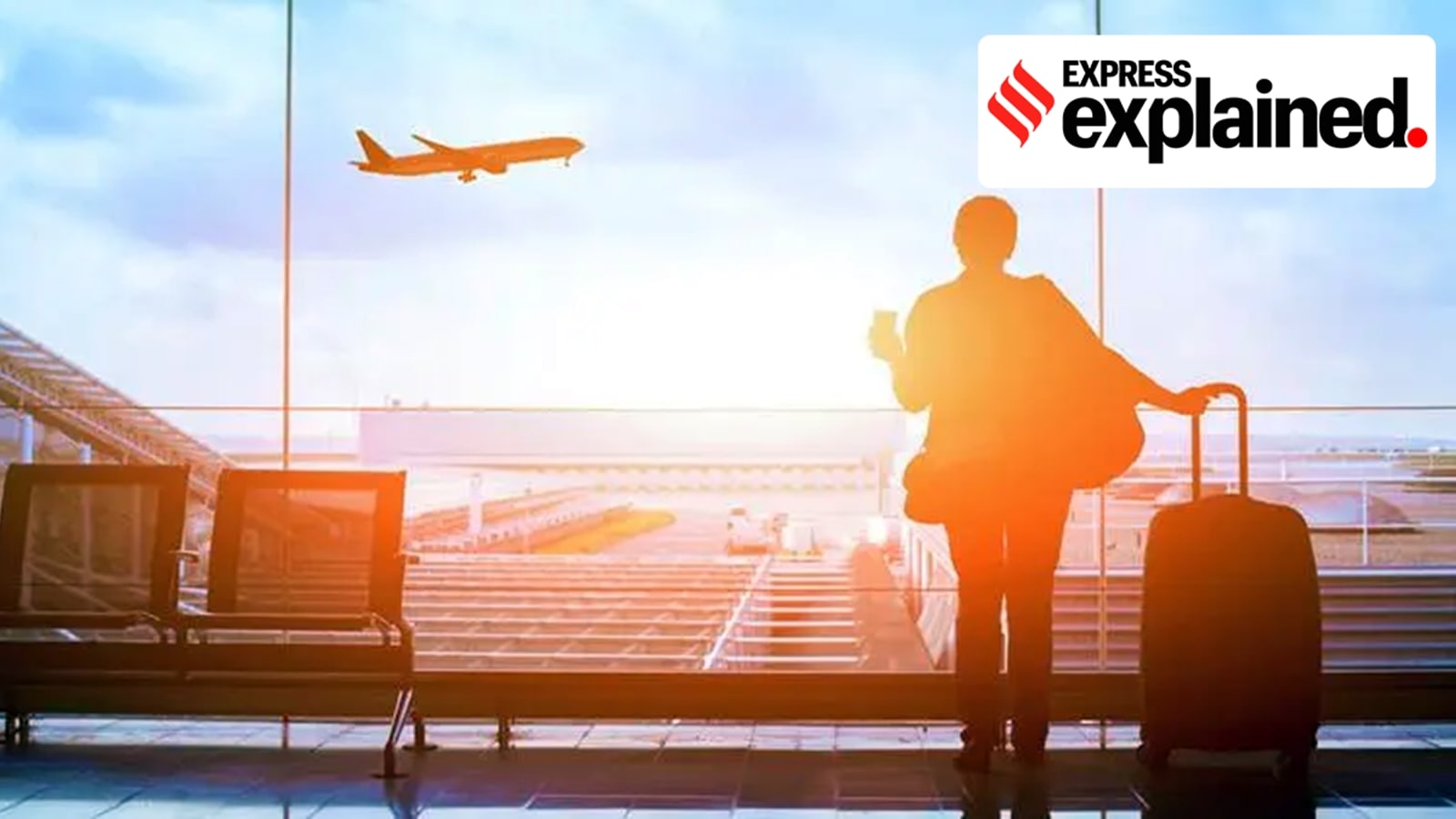‘Zero baggage’ or ‘no check-in baggage’ fares are offered by several low-cost carriers in North America, Europe, and Southeast Asia. But these fares never took off in India due to a combination of factors, including regulatory constraints that would have blunted their competitive edge.

While a regulatory limitation that effectively capped the additional charge for check-in luggage at Rs 200 for the standard 15-kg allowance was removed in 2021, airlines chose to wait and watch. Indian consumers were seen as habituated to the luggage allowance, and the carriers saw a gradual change of habit as a prerequisite for ‘no check-in baggage’ fares to become the norm.
But the introduction of this fare category by Air India Express could now nudge other Indian airlines, particularly no-frills carriers such as IndiGo, Akasa Air, and SpiceJet, to follow suit. Industry experts believe this could significantly change the structure of airfares in India going forward.
How will Air India Express’s new fare category work?
Air India Express on Tuesday announced “Xpress Lite fares”, which are essentially ‘zero check-in baggage’ fares that the airline says will be lower than regular fares (which include a free check-in baggage allowance).
To sweeten the deal, Air India Express by offering 3 kg complimentary cabin baggage allowance in addition to the regulation 7 kg, taking the total allowance included in the fare to 10 kg.
Those who book tickets at Xpress Lite fares have the option of separately pre-booking check-in baggage allowance at “significantly discounted rates”. Passengers can also buy check-in baggage allowance at the airport, but it might cost them more.
Story continues below this ad
The Xpress Lite fare is available only on the airline’s website and mobile app for now.
“The launch of Xpress Lite fares heralds what we hope will be a new way to fly in India, extending a proposition already popular amongst flyers across the world, including international airlines flying to and from India,” Ankur Garg, Chief Commercial Officer at Air India Express, said.
How does the unbundling of fares benefit airlines?
In theory, unbundling refers to dividing the product or service into multiple components, and selling each component at a different price. The idea is to stratify the market and appeal to price-sensitive consumers by offering more choices in terms of more combinations of individual offerings, instead of a single, all-inclusive offering.
Simply put, unbundling is the selling of the basic product and all its bells and whistles separately, and allowing the buyer to choose only the add-ons that she needs, rather than forcing her to buy a uniform product that costs more.
Story continues below this ad
By delinking services like baggage and in-flight food and beverage services from air fares, airlines can maximise profits while attracting passengers who are willing to forego such services in order to fly for somewhat cheaper. Besides price-sensitive customers, such fares also suit corporate travellers on short work trips.
Lower luggage loads also help the airlines save on fuel costs. They can, in addition, use the available space in the cargo hold to generate ancillary revenue by hauling goods.
Unbundling is an established strategy among (mainly low-cost) airlines globally. Over the past few years, the success of low-cost airlines globally has nudged several full-service carriers in non-Indian markets to adopt the unbundling strategy. This allows them to keep basic airfares at levels that are comparable to those of a low-cost carrier, thus attracting price-sensitive flyers who may otherwise not even consider a full-service airline.
Interestingly though, a number of low-cost carriers that earlier offered only unbundled fares, have started offering bundled fares with inclusions like check-in baggage allowance and meals in order to attract passengers who may be less price-sensitive while looking for some extra comforts.
Story continues below this ad
What is the history of ‘cabin baggage-only’ fares in India?
Several foreign carriers flying to and from India have been offering stripped-down airfares without any check-in allowance for years now. Indian carriers did try this model — but they could not make it commercially lucrative either for themselves or for their passengers due to limits imposed on check-in baggage charges by India’s aviation regulator Directorate General of Civil Aviation (DGCA).
In 2016, DGCA allowed ‘cabin baggage-only’ fares, but said airlines could charge only the “amount of incentive offered compared to lowest fare” to passengers who booked hand baggage-only fares, but had turned up at the airport with check-in luggage. As the maximum incentive for zero check-in baggage airfares was Rs 200, the maximum airlines could charge for check-in baggage for such fares was also Rs 200 (up to 15 kg).
Industry insiders said the low cap imposed by DGCA did not allow airlines to commercially exploit the unbundling option, and even after DGCA finally allowed the unbundling of services without a cap on charges for check-in luggage, no Indian carrier — until Air India Express now — announced ‘cabin baggage-only’ fares.







































